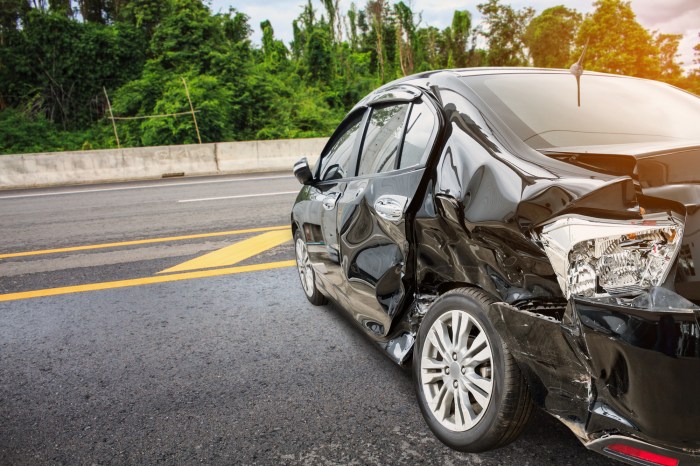When a car accident occurs, the resulting damages can be extensive and varied. Understanding the types of damages available and how they are calculated can help you navigate the legal process and ensure fair compensation for your losses. This guide provides an overview of the different categories of damages in a car accident, including economic, non-economic, and punitive damages. We will discuss how each type of damage is assessed and the factors that can influence the amount of damages awarded.
Table of Contents
ToggleTypes of Damages in a Car Accident
Car accidents can result in a wide range of damages, both to the vehicles involved and to the individuals involved. These damages can be categorized into three main types: economic, non-economic, and punitive.
Economic Damages
Economic damages are those that can be easily quantified in monetary terms. They include:
- Medical expenses: These include the costs of doctor visits, hospital stays, surgeries, and rehabilitation.
- Lost wages: This is the income that the injured person has lost due to their inability to work.
- Property damage: This is the cost of repairing or replacing the damaged vehicle.
- Other expenses: This can include the cost of transportation, child care, and other expenses incurred as a result of the accident.
Non-Economic Damages
Non-economic damages are those that are more difficult to quantify in monetary terms. They include:
- Pain and suffering: This is the physical and emotional distress that the injured person has experienced as a result of the accident.
- Loss of enjoyment of life: This is the loss of the ability to participate in activities that the injured person previously enjoyed.
- Disfigurement: This is the permanent scarring or other physical changes that the injured person has suffered as a result of the accident.
- Emotional distress: This is the mental anguish that the injured person has experienced as a result of the accident.
Punitive Damages
Punitive damages are awarded in cases where the defendant’s conduct was particularly egregious. They are intended to punish the defendant and deter others from engaging in similar conduct. Punitive damages are not always awarded, and they are only available in certain cases.
Economic Damages
Economic damages are financial losses that you suffer as a result of a car accident. These damages are intended to compensate you for the costs you have incurred and the income you have lost due to the accident.
Economic damages are calculated based on the actual expenses you have incurred and the income you have lost. This can include:
- Medical Expenses
- Hospital bills
- Doctor’s fees
- Prescription drug costs
- Rehabilitation costs
- Lost Wages
- Time missed from work due to the accident
- Reduced earning capacity due to injuries sustained in the accident
- Property Damage
- Repairs to your vehicle
- Replacement of your vehicle if it is totaled
- Damage to other property, such as your home or fence
Non-Economic Damages
Non-economic damages, also known as non-pecuniary damages, are a type of compensation awarded to victims of car accidents to compensate them for the emotional and physical pain and suffering they have experienced as a result of the accident.
Non-economic damages are assessed by considering a variety of factors, including the severity of the injuries, the length of time the victim has suffered, and the impact the injuries have had on the victim’s life. The amount of non-economic damages awarded can vary significantly depending on the circumstances of each case.
Types of Non-Economic Damages
- Pain and suffering: This is the most common type of non-economic damage and compensates the victim for the physical and emotional pain they have experienced as a result of the accident.
- Emotional distress: This type of damage compensates the victim for the emotional distress they have experienced as a result of the accident, such as anxiety, depression, and post-traumatic stress disorder (PTSD).
- Loss of enjoyment of life: This type of damage compensates the victim for the loss of enjoyment they have experienced as a result of the accident, such as the inability to participate in activities they used to enjoy.
Punitive Damages
Punitive damages are a special type of compensation awarded in car accident cases to punish the at-fault driver and deter them and others from engaging in similar reckless or malicious behavior in the future.
Punitive damages are different from compensatory damages, which are awarded to compensate the victim for their losses, such as medical expenses, lost wages, and pain and suffering. Punitive damages are not intended to compensate the victim but rather to punish the wrongdoer and send a message that such conduct will not be tolerated.
Criteria for Awarding Punitive Damages
Punitive damages are not awarded in every car accident case. In order to be awarded punitive damages, the victim must prove that the at-fault driver acted with:
- Malice
- Fraud
- Oppression
- Gross negligence
In addition, the victim must also show that the at-fault driver’s conduct was:
- Outrageous
- Intentional
- Reckless
If the victim can prove these elements, the court may award punitive damages in addition to compensatory damages.
Factors Affecting Damage Awards
In a car accident case, the amount of damages awarded is influenced by a variety of factors. These factors include the severity of injuries, the extent of property damage, and the at-fault party’s conduct.
- Severity of Injuries
- The severity of injuries is a major factor in determining the amount of damages awarded. More serious injuries typically result in higher damage awards.
- Injuries are classified into different categories, such as minor, moderate, and severe. Minor injuries may include cuts, bruises, and sprains. Moderate injuries may include broken bones, dislocations, and burns. Severe injuries may include paralysis, brain damage, and death.
- Extent of Property Damage
- The extent of property damage is another factor that can affect the amount of damages awarded. More extensive property damage typically results in higher damage awards.
- Property damage includes damage to vehicles, buildings, and other property. The cost of repairing or replacing damaged property is a major factor in determining the amount of damages awarded.
- At-Fault Party’s Conduct
- The at-fault party’s conduct can also affect the amount of damages awarded. More egregious conduct typically results in higher damage awards.
- The at-fault party’s conduct is considered when determining the amount of damages awarded for pain and suffering, emotional distress, and other non-economic damages. For example, if the at-fault party was driving under the influence of alcohol or drugs, or if they were speeding or reckless, the amount of damages awarded may be higher.
Negotiating and Settling Damages
Negotiating and settling damages claims is a crucial part of the legal process following a car accident. It involves discussions between the parties involved, typically through their respective insurance companies and/or attorneys, to reach an agreement on the amount of compensation to be paid for the damages suffered.
The negotiation process can be complex, involving factors such as the severity of injuries, the extent of property damage, and the applicable laws and regulations. Insurance companies play a significant role in the settlement process, as they are responsible for evaluating the claims and determining the appropriate compensation. Attorneys can provide legal guidance and representation to ensure that their clients’ interests are protected and that they receive fair compensation.




